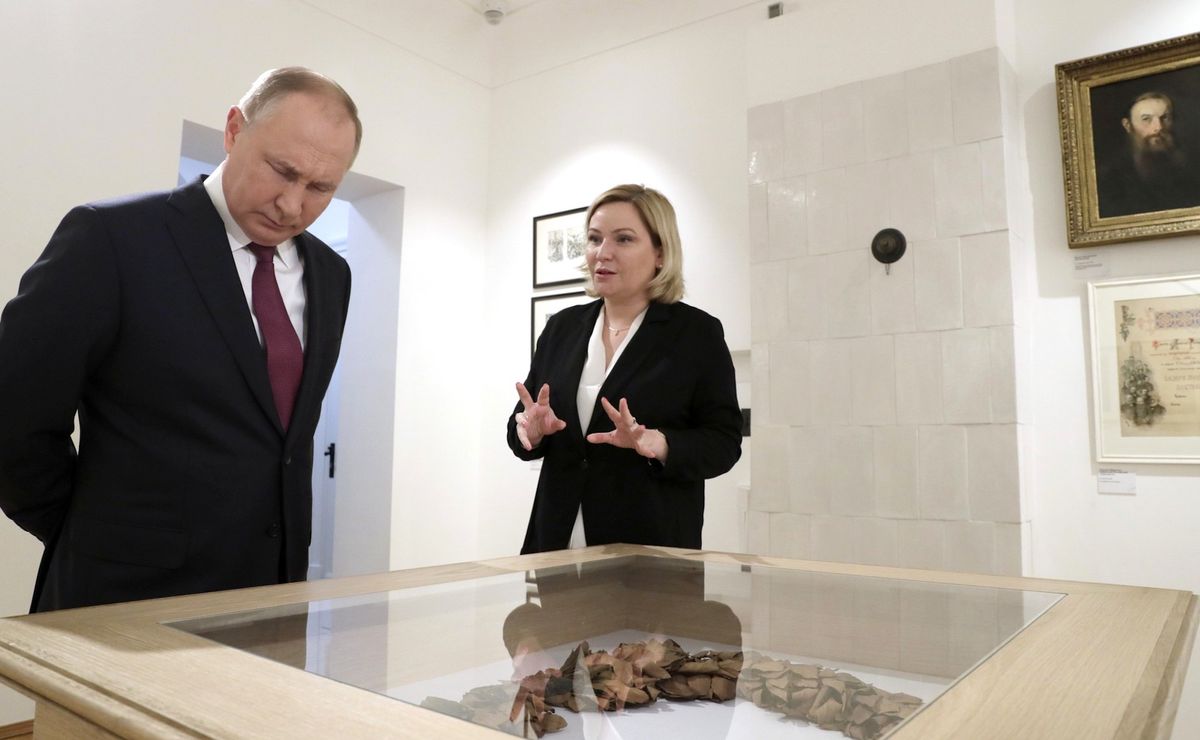Olga Lyubimova, Russia’s culture minister, has been included in the United States Department of the Treasury's updated sanctions list released on 24 February, the first anniversary of Russia’s invasion of Ukraine.
Lyubimova, who was already sanctioned by the European Union in late 2022, was added to the US sanctions list along with a number of Russian government officials and Russian and foreign businessmen accused of evading sanctions. The Treasury Department’s press release did not specify why Lyubimova was targeted, but stated that the goal of the new list is “to diminish Russia’s ability to continue its brutal war and to procure the resources used to support it”.
The culture minister, who replaced Vladimir Medinsky in 2020, has been a vocal proponent of President Vladimir Putin’s war against Ukraine. Medinsky, whose imperial historical pretentions presaged the invasion and who led Russia’s short-lived negotiations with Ukraine after the invasion, is now an aide to Putin.
Lyubimova sat among top officials when Putin gave his State of the Nation address on 21 February, in which he said that, “Cultural development will be a priority of rebuilding peaceful life in Donbass and Novorossiya”—Russia’s names for territories of Ukraine that it has illegally annexed—“including museum collections and buildings” to help link them “with the common cultural, historical and educational space of the centuries-old great Russia”.
As minister, Lyubimova has promoted Putin’s narrative of denying Ukraine’s nationhood and culture, and claiming that the West is seeking to destroy Russian cultural and spiritual values. Her meetings with Putin are featured prominently on the Kremlin’s website and national news broadcasts.
“The challenges faced by Russia, the entire Russian world, our culture, are unprecedented,” Lyubimova said last month at an educational forum organised by the Russian Orthodox Church, which also actively supports the war. “During this period, each person faces a choice, including a spiritual one. Citizens of four new subjects of the Russian Federation also made their choice. More than 20,000 employees of cultural institutions, Lugansk and Donetsk republics, Zaporozhye and Kherson regions became our new colleagues. Creative and professional exchange between our teams and institutions, integration of new regions into the cultural life of the country is our priority.”
Last November, after Ukrainian forces liberated the city of Kherson, which Russia’s military continues to subject to daily bombardment, it was reported that Russia had stolen thousands of works from the Oleksiy Shovkunenko Kherson Art Museum and taken them to Simferopol in Crimea, the Black Sea peninsula illegally annexed by Russian in 2014. They are stored in a museum there.
After Putin’s 21 February speech, Lyubimova posted in her Telegram channel about further plans on the “integration of new regions into the cultural life of the country”, including “activities for the interaction of federal museums with the museums of the LPR and DPR”. Russia refers to the illegally annexed Luhansk and Donetsk regions as the Lugansk and Donetsk people’s republics.
In an official greeting to mark Russia’s 23 February "Defender of the Fatherland Day", Lyubimova said that “a whole layer of culture is being created, created by fighters and artists” who “give their art to soldiers, officers and their families, filling their hours of relaxation with beauty and joy”.


